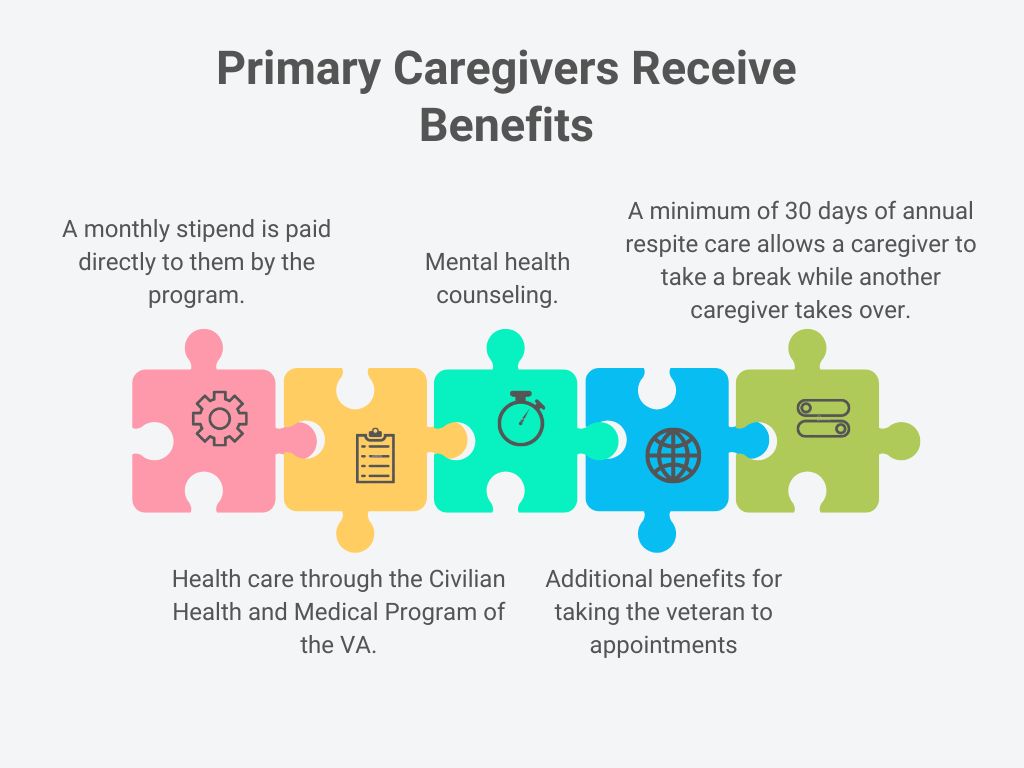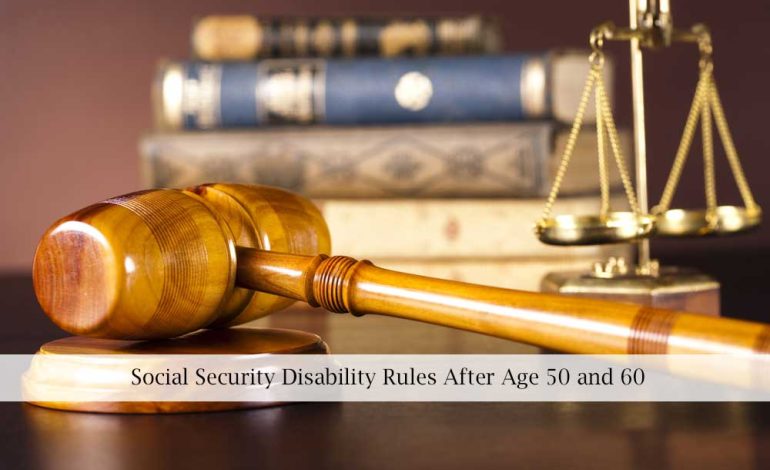How to Get Paid for Caring for a Disabled Family Member
If you or a loved one qualifies for disability benefits through the Social Security Disability Insurance or Supplemental Security Income programs, the need for a caregiver may arise. Depending on the nature of the disabling medical condition, the need for assistance may be present from the beginning, or it may develop over time as a medical condition worsens.
It may come as a surprise that programs providing benefits to assist people with disabling physical and mental impairments do not directly pay caregiver benefits. The Social Security disability lawyers at the Clauson Law Firm are committed to finding solutions to help our clients with disabilities receive all of the benefits they need to relieve at least some of the burden of living with a disability.
Whether you decide to become the caregiver for a family member who has a disability or has a disability and need help coping with daily tasks, you may have reached the point of looking for ways to pay some or all of the cost of a caregiver. Here to get you started is information about available programs that may offer help.
Social Security Disability Insurance program
To qualify for SSDI benefits, you must have paid Social Security taxes on income from jobs or self-employment for a long enough duration and have a medically determinable physical or mental impairment that is expected to last for more than a year or result in death. Among the medical conditions listed by the Social Security Administration as meeting the criteria for impairments that meet the definition used by SSDI to determine if a person is a disabled include:
- Amyotrophic lateral sclerosis is commonly known as Lou Gehrig’s disease.
- Certain conditions of the heart.
- Some types of cancer.
- Schizophrenia.
- Depression and anxiety.
The Listing of Impairments maintained and updated by the SSA includes many other types of disabling conditions that may cause a person to require assistance from a caregiver on a daily basis. SSDI does not, however, provide direct payments to or for caregivers. There is nothing preventing SSDI beneficiaries from using their monthly disability benefits to pay a family member or someone else for the assistance they provide.
Another option exists if you are the spouse of someone who qualifies for SSDI. You may be able to receive a monthly payment equal to as much as 50% of the SSDI benefits payable to your spouse. What you receive each month does not reduce the amount that your disabled spouse receives, but the total amount payable as SSDI and family benefits cannot exceed 150% to 180% of the disability payment.
You must be at least 62 years of age or older to qualify for family benefits payments. The age requirement does not apply if you care for a child younger than 16 years of age, or a child who was disabled before age 22. Benefits that you receive each month as the spouse of a disabled person offer an indirect payment toward the caregiver services that you provide.
Supplemental Security Income program and caregiver services
The SSI program provides disability benefits for adults and children who are blind or disabled and meet the eligibility criteria that include limits on the resources and income available to them from sources outside of SSI. In the same way that SSDI does not offer benefits for caregivers, you will not find them available through SSI.
Although SSI benefits may not pay for caregivers, there may be an option available to you through Medicaid. A person who qualifies for SSI benefits may also be eligible for Medicaid.
Medicaid Self-Directed Care pays caregivers
Medicaid pays the cost of health care for low-income individuals, including people with disabilities who qualify for SSI. The federal government and each of the states provided funding for the program, but it is administered by the states.

Title XIX of the Social Security Act authorized the establishment of the Medicaid program in 1965. The federal government sets basic guidelines, but the administration of Medicaid programs is left to the individual states. The result is that eligibility guidelines and coverage of services are not always consistent from state to state. For example, Medicaid coverage is automatic in some states upon approval for SSI benefits, but other states require that you file a separate application for Medicaid with the state in which you live.
The Medicaid Self-Directed Care program was implemented to offer an opportunity for someone with a disability to manage their care by letting them manage a budget and make choices about the types of services the disabled person requires. Through this program, a disabled person who needs a caregiver has the option to choose whoever they wish, including a family member, to serve in that role with payment made through the program.
Because of the dual role of the federal and state governments, Medicaid Self-Directed Care is a federal program, but each state may create a name and set guidelines for it. For example, the program operates in North Carolina as the Community Alternative Program for Disabled Adults. To be eligible for the program, a disabled adult must meet the following criteria:
- Be at least 18 years of age.
- Be at risk of an unwanted placement in a nursing facility because of a need for services.
- Be capable of remaining at home and in the community with family support and other services available through the program.
The North Carolina program authorizes the use of home aids to assist a disabled person with bathing, dressing, walking, meals, light housekeeping, and shopping. An SSI lawyer from the Clauson Law Firm will help you to determine available programs and eligibility guidelines for other states.
Veteran-Directed Care Program – Helping veterans at risk of institutionalization
The Veteran-Directed Care program was, until 2018, known as the Veteran-Directed Home and Community Based Services program. The primary goal is to allow veterans who are at risk of requiring placement in a nursing facility to have the option of remaining at home while receive the level of care that they require.
A veteran is given a budget to manage and use to pay for long-term services with the assistance of a program counselor who provides guidance to veterans, their families, and caregivers in the following areas:
- Assessment and care planning.
- Fiscal management services.
- Ongoing support and counseling as needed.
All veterans who are enrolled in the VA health care system are eligible for the program, but they must be screened to determine whether they have a need for the services it offers. Generally, a veteran must need assistance with activities normally associated with daily living, including bathing and getting dressed or preparing meals. The Veteran-Directed Care program is available through local VA medical centers.
Program of Comprehensive Assistance for Family Caregivers
The PCAFC is a program available to veterans with a VA disability rating of at least 70%. It is limited to veterans whose disability was caused or worsened while on active duty on or before May 7, 1975, and those who served on or after Sept. 11, 2001.
Veterans must require at least six months of personal care services. If they do, the program lets them designate a family member to serve as a caregiver. A veteran also has the option to designate up to two other family members as secondary caregivers.

Primary caregivers receive benefits that include:
- A monthly stipend is paid directly to them by the program.
- Health care through the Civilian Health and Medical Program of the VA.
- Mental health counseling.
- Additional benefits for taking the veteran to appointments
- A minimum of 30 days of annual respite care allows a caregiver to take a break while another caregiver takes over.
Family members designated as secondary caregivers receive the almost same benefits as primary caregivers except for monthly stipends and access to health care.
Private insurance policies – Long-term care insurance
If a disabled person has a policy of long-term care insurance, it may authorize payments to family members who act as caregivers. It depends on the terms of the policy. Some policies may pay caregivers, but they will not pay caregivers who are family members residing in the same household with the disabled person. Ask an SSD benefits lawyer whether the terms of a long-term care policy that you may have pays benefits for a family member acting as a caregiver.
Family Medical Leave Act and state laws
The federal Family Medical Leave Act authorizes 12 weeks of unpaid leave each year to care for a family member. Although it does not authorize payments to a caregiver and only applies to employers with 50 or more employees, a few states have passed their own laws that offer broader benefits.
For example, 11 states now offer paid family and medical leave, but it may only be available to people working for larger employers making the laws similar to the federal statute. An SSD lawyer has the knowledge and experience to advise and represent you in all matters related to SSD benefits, including how a family member may receive payment for caregiver services. Contact the Clauson Law Firm today for a free consultation.
Which authority administers the Medicaid program?
The federal government and each of the states provide funding for this program, but it is administered by the states.
Does SSDI provide direct payments to or for caregivers?
The SSA Listing of Impairments includes disabling conditions that may cause a person to need caregiver assistance every day. It, however, does not have any provision to provide direct payments to or for caregivers.



12 Comments
I’m taking care of my husband who has stage 4 COPD and I have to bath him, dress him, bring his food and drink to him. I do all the cleaning, laundry and driving in the house hold. It’s just the two of us. I seen this online so I thought I’d would check it out to see if it’s true. Thanks
I am taking care of my disabled wife I help her with her baths food drink and house keeping laundry dressing and neither personal tasks. I have to take her to and from her fictits appointments and other arrands.
I take care of my ex mother in law.i am a live in caregiver I have to cook clean wash her clothes and bath her dress her. Give her her meds also. Can I receive anything for doing this. Thank you
In July last year, I started on Lou Gehrig’s disease TREATMENT PROTOCOL from Health Natural Centre (ww w. health natural centre. org). One month into the treatment, I made a significant recovery. After I completed the recommended treatment, almost all my symptoms were gone, great improvement with my movement and balance. Its been a year, life has been amazing
Yes hello there I’m trying to find out if my 80 year old dad who’s on social security and been taking care of my brother who’s 45 on social security due to his disability is able to get additional income for being his caretaker my mom and dad has been his caretaker for many years and my mom passed away 6 years ago and my dad is struggling , is there any help we can get for him please and thank you
My wife takes care of me cuz all the laundry cooking cleaning store everything I’m paralyzed for the arms down she takes me all my doctor’s appointments and everything can she get paid for that I’m on SSDI I have eight rods in my back I’m trying to do is move my neck and my arms?
I wife was on SSDI I took care of her needs and worked a full time job really struggling she had passed someone asked why did I not apply for care giving expenses I did not know can I apply for back benefits
I’m currently taking care of my mom who suffered with dementia for almost 3 yrs now & since she refused to stay in the nursing home, she has a part time caregiver provided by her with the insurance etna during mwf, but I mostly took care of her daily meds required for her dementia, hypertension, monitoring her vitals along with her expenses with daily meals, vitamins throughout 24/7 & during weekends too. Can SSDI provide me or her with some compensation through all my caregiving services & her disability expenses care thoughout 24/7 since her ss cannot make a peanut cut with todays inflation?
Hi, my dad has been in a wheelchair for yrs and needs help in everything. My mom and myself would look after him but a monh ago she passed 6. I’m now taking care of him literally 24/7. The only time I ain’t looking after him is 5pm -7pm and my younger sister keeps an eye on him at that time. He is on disability and would like to know if and how i can apply to get paid for taking care of him everyday for 22hrs.?
Was wondering if someone who knew the truth would contact me about benefits to a character for someone who has SSI
Very good blog you have here but I was curious about if you knew of any message boards that cover the same topics discussed here? I’d really love to be a part of group where I can get advice from other experienced individuals that share the same interest If you have any recommendations, please let me know Many thanks!
Is it fair that certain medical conditions are more likely to be approved for long-term disability benefits than others, leading to potential discrimination against individuals with less “visible” illnesses?”,
“refusal